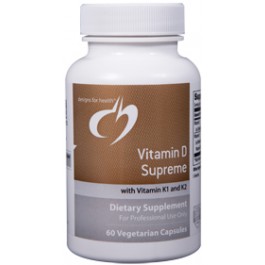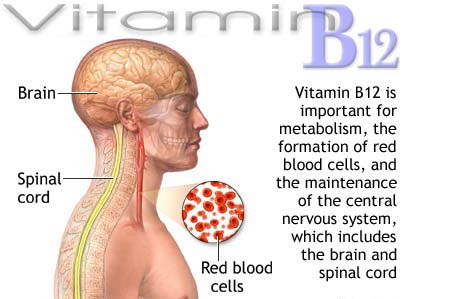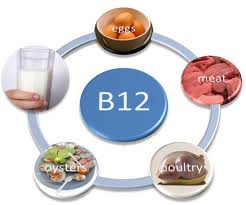
Quick Overview
Vitamin D Supreme provides a clinically useful dose of vitamin D3 and vitamin K in both the K1 and MK-7 form of K2. This formula contains higher...

The health benefits of Vitamin B12 are best derived from animal foods. The stomach secretes a special digestive agent called intrinsic factor to help absorb B12 from these foods. Though vegans and vegetarians lean towards fermented soy products like tempeh for Vitamin B12, scientists believe it is likely not a usable form of the vitamin (Weston A. Price Foundation). Supplementing with B12 would be recommended for those on non-animal diets, as deficiencies in cobalamin or intrinsic factor can lead to many health issues that we will discuss next.
 These are listed roughly in order of content of the vitamin from highest to lowest:
These are listed roughly in order of content of the vitamin from highest to lowest:
As previously mentioned, Vitamin B12 is stored in the tissue and organs of the body. Because of this characteristic, it will often take up to 5 or 6 years for symptoms of deficiency to develop from poor dietary intake. The most common sign of deficiency is a condition known as pernicious anemia. However, B12 deficiency will actually affect the brain and the nervous system first.
Vitamin B12 plays a critical role in our metabolism, our immune function and our nerve function. A diet abundant in this vital nutrient is key to optimal health. Those who do not eat animal products, or those with chronic illness and food absorption problems should supplement with high quality Vitamin B12 supplements. Because this vitamin works in conjunction with folic acid, it is critical to consume folic acid through the diet as well.
Dosages of Vitamin B12, or any supplement, will depend on several factors. And monitoring the body for B12 may require blood tests and expert care. Consulting with a highly qualified health practitioner is key to balancing the vital nutrients in the body.

Vitamin D Supreme provides a clinically useful dose of vitamin D3 and vitamin K in both the K1 and MK-7 form of K2. This formula contains higher...
